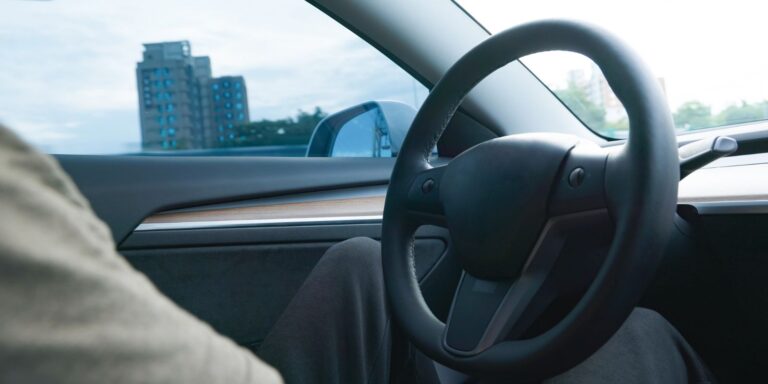A new survey from Carmoola, the digital car finance lender, has revealed public opinion on self-driving cars following the passing of the Automated Vehicle Act 2024 earlier this year.
The legislation will accelerate autonomous vehicle adoption in the UK, with the current aim to have cars that operate without human involvement on British roads as soon as 2026.[2]
A nationally representative survey of 2,000 Brits reveals that one in fourteen (7%), or approximately 3.3 million, people[1] would be comfortable with children under the age of 16 ‘behind the wheel’ of a self-driving car.
Additionally, one in seven (14%) are in favour of people with visual impairments driving such cars, and one in 11 (9%) would be happy for people with no driving experience to sit behind the wheel of driverless vehicles.
Brits would also be happy for those who aren’t typically ‘fit to drive’ – by the DVLA’s standards – manually-driven, or non-adapted cars, to operate self-driving cars. This includes people with physical disabilities (20%); those with severe epilepsy (11%); as well as individuals with cognitive impairment or dementia (both 10%).
However, only a third (30%) of British adults are currently “confident” in the ability of autonomous vehicles to take over driving responsibilities from humans. Millennials were among the most confident in the future of self-driving cars, with half (48%) of respondents aged 25-34-years-old expressing their faith in driverless cars, in comparison to just a sixth (16%) of Brits over the age of 55.
Regionally, it was found that people in Greater London are particularly welcoming of self-driving cars, with nearly half (45%) of residents confident in the future of driverless cars on UK roads, closely followed by people in Wales (33%) and the East Midlands (32%).
Aidan Rushby, founder and CEO of Carmoola, said: “As we look toward a future of self-driving cars, we wanted to explore how comfortable Brits are with the idea of these cars operating on UK roads.
“While there is still hesitation among the public, the ongoing debate about who should be legally permitted to ‘drive’ an autonomous vehicle is intriguing. Even though full control isn’t required, the conversation around who can sit behind the wheel is far from settled. There are many rules yet to be defined – from the legal driving age to the qualifications of those allowed to operate these vehicles.
“With 2026 fast approaching, key questions remain; Will our roads be ready for self-driving cars? Will drivers adapt? And will more people than ever before take the wheel as a result?”

